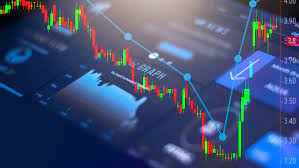The mt4 trading platform is a go-to solution for traders aiming to succeed in global financial markets. Known for its robust tools and user-friendly interface, MT4 remains a trusted choice for trading currencies, commodities, indices, and more. Whether you’re an experienced trader or just taking your first steps, understanding how to effectively use this powerful platform can set you up for success.
This guide will walk you through everything you need to know to get started with MT4 and trade confidently.
Why Choose MT4 for Trading?
MT4 has held its reputation as one of the most trusted trading platforms for years, and for good reason. Its standout features include advanced charting tools, a wide variety of built-in technical indicators, and the ability to automate trades using Expert Advisors (EAs). Additionally, it offers high-level security and multi-device compatibility, allowing traders to operate seamlessly across desktop, mobile, and tablets.
How to Get Started With MT4
1. Download and Set Up MT4
Begin by downloading the MT4 platform from a trusted source. Install the software on your device, and once it’s set up, log in with your trading account credentials provided by your broker. The MT4 interface is intuitive, making it easy to familiarize yourself with its various features.
2. Customize Your Workspace
Trading with confidence starts with personalizing your workspace. MT4 allows you to customize charts, add indicators, and choose time frames that align with your trading strategies. Familiarize yourself with features like pending orders, stop-loss settings, and take-profit options.
3. Practice With a Demo Account
Before entering live trades, take advantage of the demo account feature. A demo account mirrors real-market conditions, enabling you to practice strategies without risking actual capital. This is an excellent way to build confidence and refine techniques before committing funds.
4. Execute Your First Trade
When you’re ready to enter live markets, use the “New Order” button to place a trade. Select the instrument, trade size, and direction (buy or sell). Don’t forget to set stop-loss and take-profit levels to manage risk effectively.
Tips for Confident Trading
• Stay Updated: Monitor market trends and news for factors influencing your trades.
•
• Use Analysis Tools: Leverage MT4’s features, like Fibonacci retracements and moving averages, to make informed decisions.
•
• Risk Management is Key: Never over-leverage. Stick to a plan that minimizes risk and ensures long-term sustainability.
•
With its sophisticated tools and practical features, MT4 empowers traders to approach markets with confidence and precision. Start small, expand your knowledge, and watch your trading potential grow.

